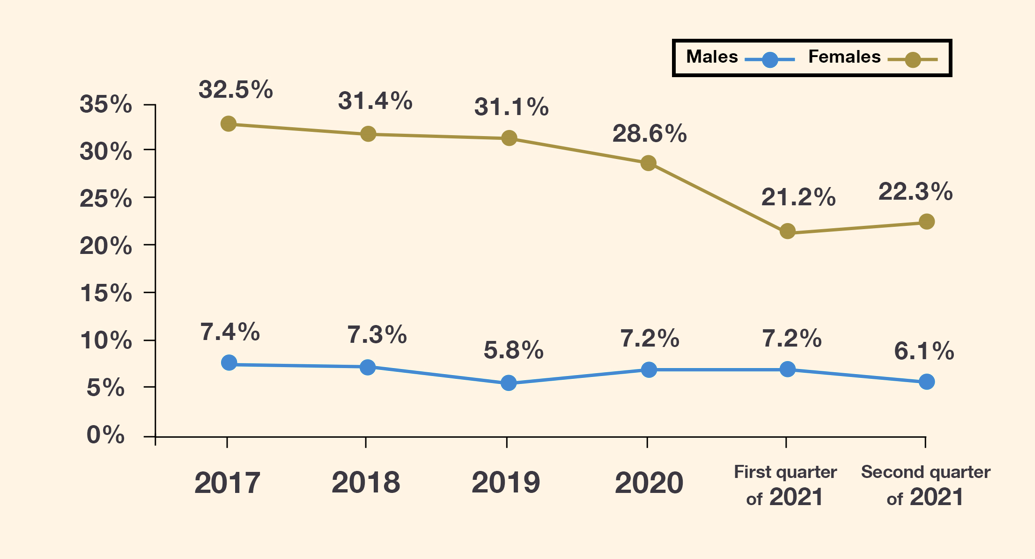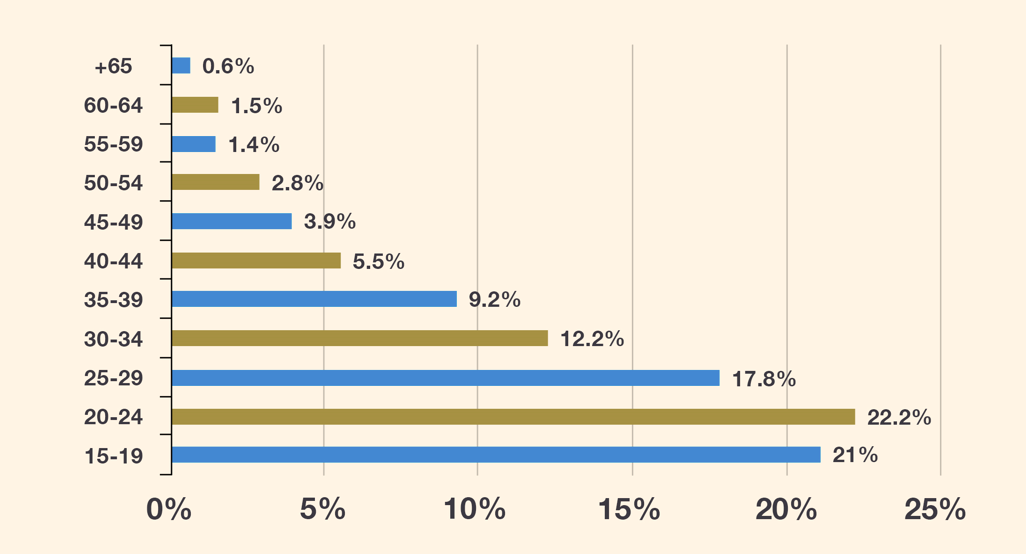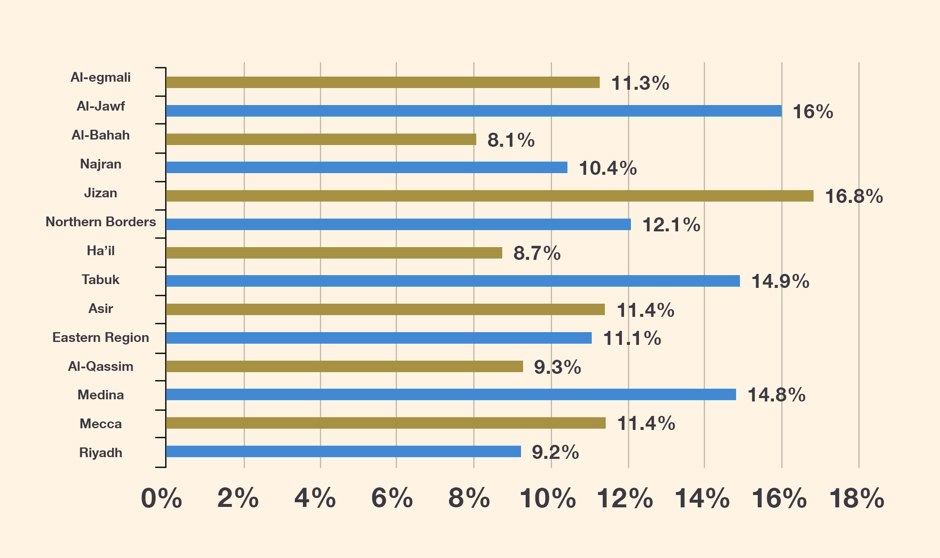PESTEL tool
By:
Ghaith Albahr: CEO of INDICATORS Company
Reem Barakat: Research Coordinator in INDICATORS
What are the external factors that affect the success or the failure of startups?
Business sector is a very complex, anything happens in the country affects it, directly or indirectly as well as the internal factors that affect companies such as the employees and the required logistics, and the external factors such as competitors, customers, and suppliers…etc, there are bigger and more dangerous factors, if not taken into account, these factors are generally centered around the surrounding regional environment such as the economic downturn, the changing climate of some countries, the political circumstances, society targeted by the company, and several other factors that must be taken into consideration.
When proposing a new project idea it cannot be adopted only because it is unique, for example according to Wikipedia KitKat company offered 300 different flavors of chocolate bars in Japan since 2000 to test and release new products in Japanese market, taking advantage of the low of fees on primary products, this helped in the company success and achieve more sales in Japan from 2012 to 2014, due to the fact that generally known about Japanese people love green tea, this made KitKat launch a chocolate bar with green tea flavor in 2004, even it changed the cover of this chocolate to green color, while it is in all other countries where offered in red cover, KitKat depended on the research of society norms and traditions, that why it went to this big change in Japan and which was one of the most important factors that helped the company make huge profit.
As well as the example of KitKat, many companies try to enter the market without taking into account these external and regional factors which caused its failure.
What are the external and regional factors that must be considered for your new business?
As we’ve see in KitKat example it is necessary to pay attention of many regional factors, in order to test these factors correctly without neglecting any of sensitive aspects it’s recommended to use PESTEL tool which is considered one of the idea validation tools, this tool helps to know the circumstances and the general factors that surrounding the company and their impact on it. PESTEL focuses on six main factors that neglecting them may cause the company failure or loss of money and time, for example, if we are seeking to establish a construction company that costs millions of dollars which will be in a country where the market in need of the services of such company, but in terms of political and economic conditions, it has been found that the continuous depreciation of the currency of the country has a high likelihood to cause the company failure, if several million dollars are invested in the company and the money transferred to the local currency and the value of currency decreased to the half over three years this means that if the company gain 100% profit actually it will just be reached to zero point comparing to the value of the capital in dollars.
In order to have integrated analysis of the regional factors affecting the company, PESTEL tool focuses on the following six factors:
-
POLITICAL: which means studying the country political stability in its relations with neighboring countries and other countries, and how that affects the company we want to establish, such as political boycotts that occur between countries that negatively affect import and export, and tax policy that the state provides for foreign companies or goods imported from certain countries, I.e. the economic war launched by America against China, in this period it’s not recommended for a US company to start a business that highly dependent on Chinese electronic parts because double the taxes will cause the business failure because of the high prices of their products, which leads to their inability to compete.
-
ECONOMIC: Which means knowing whether the country is in economic recession or growth, the stability of the local currency, what is the situation of country credit rating, the extent of confidence in the products it exports, and everything related to the economic aspects of the country with focusing especially on the factors that affect our company, in the example that we’ve mentioned before, we’ve seen how the decrease in the value of the currency cause the company to lose all of the profit despite the fact that all indicators related to the demand for the construction services were positive.
-
SOCIAL: all about social customs and traditions, the composition of the society, religions and intellectual currents…etc. Let’s say that the company works in Middle East in the field of food products, when trying to enter the Japanese market, it launched products similar to the ones it offers in the Middle East market and faced low sales and huge losses even though the same products were successful in the Middle East, so when returning to the reasons it found that the company was offering products of family sizes which is too big for the Japanese family, while in the Middle East the family consists of an average of six, while the Japanese family consists of a maximum of three.
-
TECHNOLOGICAL: It is all related to the technological infrastructure in the country that affects our business which its negligence could be the reason for its failure, especially if it depends in a large part of its work on that. I.e. before YouTube, several companies tried to launch sites of video watching but they failed because the Internet was at that time still on Dial-Up system which did not help to attract people to watch videos because it takes too long to be loaded, as for YouTube succeed because it was established with the beginning of the DSL internet, which was the most important factor for its success.
-
ENVIRONMENTAL: everything related to the environmental conditions in the country, regulations related to the environment and environmental licenses, which have a direct impact on the company in this aspect. I.e. it was noticed that many investors who moved from countries that did not require complex environmental licenses and established factories in other countries immediately started planning for work with maximum capacity and built financial plans on their expectations to start production directly they were shocked that these countries did not allow them to operate except for a limited capacity for factory waste and exhaust tests to obtain the environmental licenses and operate the factory with full capacity, some factories required at least six months to obtain the environmental licenses and that led to huge losses that started from contracts that were concluded with customers and were not fulfilled and employment of workers that should work with full capacity, in addition to mistakes in the financial calculations.
-
LEGAL: it means the regulations stipulated by the state related to employment regulations, consumer protection, ownership, health, education and the conditions that the state sets in general for the establishment of any company, neglecting the regulations will cause the company’s failure as if the company establishes the project without paying attention to the legal conditions related to employment and calculates the cost of the product and the pricing neglecting the costs related to employment, which leads to mistakes in pricing and the company’s loss.
How do I make the best use of PESTEL?
Mostly, PESTEL analysis implemented through workshops in which investors and people who participate in the establishment of the company, in addition to experts and specialists in several fields, the most important of which is the company’s field of work itself and specialists in economics and law, and the other fields that related to PESTEL analysis. The depth of the analysis, discussions and the number of workshops that needed depend on the business size and complexity.
To benefit more from PESTEL analysis, it is recommended to look at the risks that this analysis reveals as opportunities, as it can be turned into opportunities by building procedures or bringing about changes in the project idea so that it is able to deal with those risks or use them as a market entry. In other words, if it shows from the results of PESTEL analysis that there is a big risk that the company may face in an aspect it is not necessary to consider the business idea a failure or cancel it, but rather to think about how to develop the business idea in order to exceed this risk, make it as a competitive advantage and increase the opportunities of the success of our business.
PRODUCT DEVELOPMENT
By:
Ghaith Albahr: CEO of INDICATORS
Anas Attar Sabbagh: Research officer in INDICATORS
Product Development Strategies:
Product development strategy refers to the methods and procedures used to present new products to the market or to modify existing products to create new businesses.
Product Development Stages:
1. Identifying opportunities (the emptiness that the product will fill)
2. The stage of creating new ideas
3. Idea’s assessment stage
4. Studying the new product in terms of cost and quality
5. Testing the developed product
6. The stage of introducing the developed product to the market
7. Post-marketing evaluation stage
The Importance of Product Development
Product development is one of the important marketing activities during the life cycle of the product and the activity of the establishment as a whole, as this process represents the stage of innovating, creating, and presenting all that is new, on the basis that the consumer expects the establishment to provide him with the best in terms of quality and efficacy at the convenient price and at the convenient time and place.
The following chart shows the percentage of the expenditures spent by (APPLE)
Co. on research and development in relation to the total revenues

Product Development Data Sources
1. Customer needs analysis
2. Customer behavior analysis
3. Competitor analysis
4. Customer feedback analysis
5. Studying customer satisfaction
6. Testing customer experience
7. Compared to other experiences
8. Analyzing competitor products and alternative products
Product Development tools
1. Innovation
2. The new product must be eco-friendly
3. Manufacturability
4. Improving maintainability
5. Reducing complexity and increasing modularity
6. Increasing efficacy and durability
7. Reducing production costs
Product Development Risks
1. Takes a long time
2. The product development process is expensive
3. Strict legal requirements
4. Failure in estimating results
Rubbish data
Through my experience of working with many organizations, research centers, and academic researchers, I have noticed an issue in the collected data that only can be named as rubbish data or useless data.
The idea of useless data can be summarized as data or questions asked in questionnaires that are not useful in anything related to the objectives of the research, for example in many monitoring or evaluation activities, questions are asked in beneficiary interviews about the family structure in detail, such as asking about the family members disaggregated by gender and age groups. Some may think that these data are important, but experience says the opposite, as these data are important in the phase of needs assessment and selection of beneficiaries, which were already collected in the previous activities, and all the cases I witnessed did not use this data (in the course of writing a monitoring or evaluation report), and in the best case, the family members data were grouped into a final number, so why were all these details asked and make the beneficiaries exhausted with all these questions?
The belief of some researchers that if these data are not useful, it will not cause any issues is wrong, as a large number of questions and asking questions that have nothing to do with the research objectives causes several problems, including an increase in costs, an increase in the participants’ hesitation and fear due to a large number of details that are asked about and the lack of Its rationality, the decrease in the participants’ interest in providing serious answers due to the increase in the duration of the interview and their fatigue, an increase in the possibility of errors in data collection, an increase in the complexities of data analysis, distracting the researcher from the processing data and writing the report and thus discussing topics that not related to the objectives of the research and distracting the decision-makers.
The observed cases that may be called rubbish data are uncountable. Asking about the name of the participant in a political poll in which the name of the participant does not matter at all, it only expresses his legal personality as a representative of a sample of the surveyed community groups (except in rare cases related to verification and follow-up of the data collection teams), asking about the participant’s name will necessarily lead to providing answers that stray more from his true opinions, as a result of his fear of linking those answers to his name and exposing him to any harm. I always advise that the questions we ask to be linked to the objectives of our research and not to say, “We wouldn’t lose anything if we ask this question.”
By:
Ghaith Albahr: CEO of INDICATORS
Syrians Online working
Online working doesn’t need the working to stay in the same place, which is make it suitable for Syrian situation, while Syrians can work wherever they move, they only need an internet connection and a computer to continue their work.
Another benefit comes from the income, which it will be in foreign currency, that means higher income comparing to the low prices of Syrian pound. This also brings money to the local market which increases its movement.
Brief of the assessment:
Objectives: This assessment is trying to increase the opportunities of Syrians online working, by screening the available competencies that suitable for such business, and discovering the projects that can be most effective and helpful for them to start working via internet, then share them with the NGOs that interested Syrian employment.
Main themes:
- Syrian competencies for online working.
- Description of the situation of current Syrian online workers.
- Barriers and challenges of online working, especially for Syrians.
- Expectations of growth for online working in Syria.
- Recommended projects to prepare Syrians for online working.
Scope:
The assessment will cover 3 governorates: Idleb, Daraa, and Aleppo.
Will be conducted in January/2018.
Target groups:
The questions concentrate on Syrian youth, females, and people with disability.
Data sources:
- Syrian individuals: to screen the competencies they have for online working, their awareness about it, and the equipment they have for such business.
- Syrian online workers: to provide full stories about some online workers, how they started their work, their monthly salaries, the challenges that face them, their needs to improve their business…
- Online working consultants: to have in depth information about online working, what they recommend for Syrian situation, what they recommend to deal with the challenges of Syrians online working, what kind of trainings Syrians need to be able to start working online…
- Secondary data: to review any research have been done about online working, what are the most demanded services, how online working platforms working, how to manage money transfers…
For those interested in this study and its results:
Click here
Syrians’ Right to Legal Documents
Due to the importance of personal identification documents and the negative
consequences of not possessing them on the lives of individuals, this study was
conducted, in order to reveal the numbers of Syrians who do not have personal
identification documents, and to define the most prominent personal identification
documents that Syrians suffer tremendously to obtain, while listing the negative
consequences of not possessing them.
The study was conducted in the cities of Idlib and Salqeen in Syria, it also included the
city of Urfa in Turkey and the regions of Arsal and the Bekaa in Lebanon, in which 305
male and female participated, taking into consideration while selecting them a
number of variables such as status of residence, age and social status, and data
collection was conducted using a questionnaire with closed-ended questions.
The results of the study showed that many Syrians, whether residing in the liberated
areas or in the countries of refuge, do not possess the personal identity documents of
all kinds, especially passports, civil registry record or educational documents.
Additionally, many Syrian children are still not registered at official state departments
and many young people, who are more than fourteen years old, still do not possess
IDs. Many Syrian have lost their personal identification documents as a result of the
bombing of their areas or during displacement, or it was confiscated or destroyed by
the various military bodies and forces dominated by the Syrian regime.
The fear of being arrested by the pro-regime forces prohibited many Syrians from
traveling to regime areas which constituted the main reason for the Syrians’ inability
to obtain any official document. In addition to the fact that many of them cannot
afford paying for these documents, considering that paying bribes to employees of the
governmental institutions or hiring a lawyer is the most common ways to obtain these
documents.
As for the negative outcomes of the non-possession of official documents and not
registering personal affairs documents in the official government departments, the
most concerning issue is depriving unregistered children from their nationality,
particularly in the event of the inability to register the marriage documents, and the
inability of people without personal IDs to vote or run for public services jobs or state
departments jobs, in addition to depriving them of many of their most basic rights that
people cannot live properly without it, such as the right to education, the right to
work, the prevention of travel and the restriction of individual freedom and
deprivation of health care.
UNEMPLOYMENT IN SAUDI ARABIA
By:
Ghaith Albahr: CEO of INDICATORS
Anas Attar Sabbagh: Research officer in INDICATORS
UNEMPLOYMENT IN SAUDI ARABIA
The unemployment percentage has reached its lowest in 2019 compared to the previous years, which indicates the economic recovery in Saudi Arabia due to the efforts of the government exerted in the programs of the Saudi Vision 2030
In 2020, there was a noticeable increase in the unemployment rate due to the spread of the COVID-19 pandemic
In the first half of 2021, we notice that there was a noticeable decrease in the unemployment rate among Saudis, as the unemployment rate reached its lowest since 2017, and the recent data shows a recovery from the repercussions of COVID-19 on the economic activity in the country and confirms the ability of the Saudi economy to accommodate thousands of job seekers

In view of the above, we notice that the decrease of the unemployment rate was faster among females than among males at the beginning of this year, which shows the role of the Saudi government in supporting and empowering Saudi women.
And it also shows that the programs of Saudi Vision 2030 for employing Saudis which aim to reduce the unemployment rate to 7% by 2030 have started to yield results
Distribution of unemployment by age in the second quarter of 2021

There is a noticeable increase in the unemployment rates among the youth between 25 and 29 years old, who supposedly have completed their educational attainment and received education and expertise required for employment, however, the unemployment rate among this age group has almost reached 18%, and it drops with the increase of age, which shows that the unemployment crisis is concentrated among the youth
Unemployment rate by the province in the second quarter of 2021

Source: General Authority for Statistics – Kingdom of Saudi Arabia






